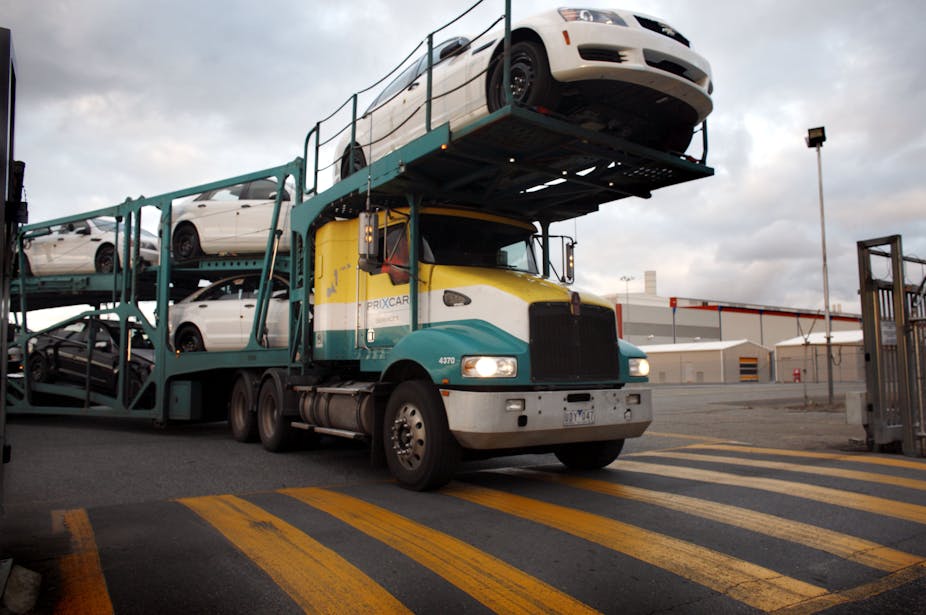A substantial increase in vehicle manufacturing is needed if Australia is ever to have a sustainable car industry, according to preliminary findings released today by the Productivity Commission’s inquiry into Australia’s Automotive Manufacturing Industry.
The preliminary report found that not only did Australia have very high labour costs, but it also suffered from high logistics costs and utility charges. Many of the findings, especially around the fragmented domestic market and difficulties in exporting, have already been widely canvased.
The Commission has been working since October, investigating issues affecting the car manufacturing industry, as well as possible alternatives to government support.
Paul Gollan, associate Dean of Macquarie University’s faculty of business, said while labour costs are known to be high, logistics costs were also a problem.
“Less than half the components are sourced from Australia, so [car manufacturers] are subject to very long supply chains back to China and elsewhere,” he said.
But Professor Remy Davison, from Monash University, criticised the paper for ignoring “the billions of dollars in indirect assistance afforded to the resources, banking and housing sectors”.
“The Commission’s interim report does not canvas the deleterious impact of the hollowing-out of Australia’s engineering capacity in the absence of the automotive and associated industries, leading to the loss of a domestic skill base,” he said.
The Federal Government had told car manufacturers Holden and Toyota they would have to await the findings of the inquiry before any further funding decisions were taken.
Prime Minister Tony Abbott had promised to reduce industry assistance by A$500 million before the September election.
Less than a day after he had told a Commission hearing that [Holden had not made a decision about withdrawing from Australia](www.smh.com.au/federal-politics/political-news/holden-no-decision-on-future-in-australia-20131210-2z2bo.htm, the company’s managing director Mike Devereux announced an [exit from manufacturing by 2017](https://theconversation.com/holden-to-cease-making-cars-in-australia-by-2017-experts-react-21369.

“Had the Holden announcement been held over until 2014 – or if the firm had reached an agreement with the Commonwealth government for further assistance – it is very likely that the Commission’s assessment would have been markedly different,” Professor Davison said.
In its submission to the inquiry, Holden argued “an ongoing private-public partnership was needed in Australia for the automotive manufacturing sector to compete globally”.
The submission urged the government to consider tariffs, subsidies, and tax incentives. “The reality is that countries don’t have an automotive industry without some form of government assistance,” it said.
Ford announced in May [it would cease production by 2016](https://theconversation.com/ford-to-pull-out-of-car-production-in-australia-expert-reaction-14584, and Toyota is also [considering exiting manufacturing in Australia](https://theconversation.com/toyota-ponders-future-as-holden-exits-21374.
Barry Burgan, Professor of Business at Torrens University Australia, said he was not surprised at the preliminary findings. “They essentially draw a conclusion that Australia is a high cost nation, and that international forces are moving against a sustainable industry that is based here.”
“The end result is that any support to sustain the industry as it exists are somewhat doomed to failure, to being a waste of money,” he said.
“This is undoubtedly conventional wisdom, though there are some who would disagree strongly and suggest that there is a future outside of the high volume, mass produced market.”
Professor Gollan agreed that opportunities still existed in high value vehicles and in niche markets. “We could produce vehicles that make high profits on a small scale,” he said.
“These could be specialised vehicles like in the mining sector or sports vehicles like in high cost European countries.”
The report found that the difficulties in passenger vehicle manufacturing did not extend to other segments, including truck and bus manufacturing, which had grown and were profitable without government support.
The Commission is due to provide a final report to the Government by the end of March next year.

